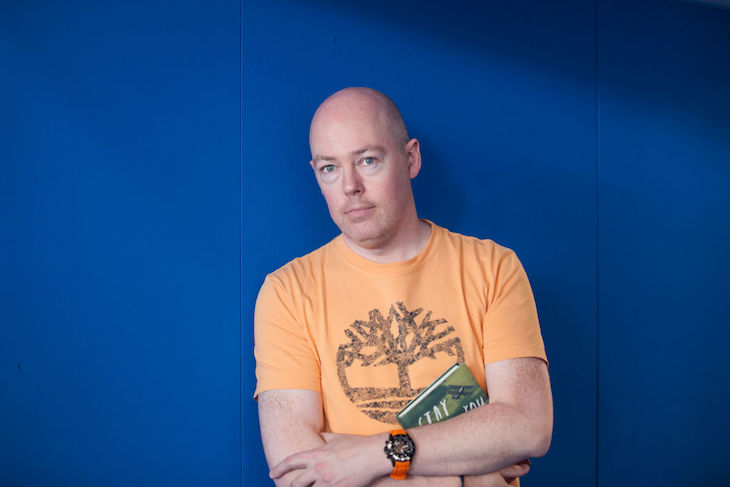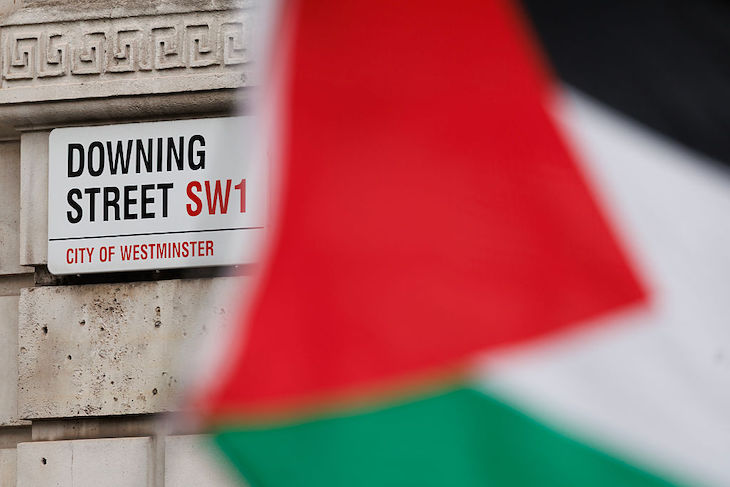The news that the Polari Prize for LGBTQ+ writing is not to be awarded this year after outrage that the novelist John Boyne was included on the longlist represents one of the more head-scratching reversals that the world of books has seen in a considerable time. Boyne’s novel Earth was selected on merit, but the Irish author, who proudly describes himself as a ‘Terf’ and has dared to be photographed with JK Rowling, the nemesis of the trans movement, was swiftly pilloried as soon as the longlist was announced on 1 August.
Judges resigned in disgust and other longlisted writers called Boyne’s views ‘disgusting’
Judges resigned in disgust, other longlisted writers called Boyne’s views ‘disgusting’ and ‘abhorrent’ and an open letter, signed by 800 people, was circulated condemning both the author and the prize for daring to even consider him at all.
Initially the organisers attempted to stand firm, arguing that: ‘Even within our community, we can at times hold radically different positions on substantive issues. This is one of those times.’ Boyne, who made a dignified public statement attesting to the ‘extraordinary amount of bullying and intimidation’ that he had faced as a result of the longlisting, did not offer to withdraw from contention altogether, but instead asked that the judges not consider his book for the shortlist. This proved inadequate, and the Polari organisers therefore bowed to the inevitable and cancelled this year’s prize altogether, depriving someone who could have done with it.
Quite where the award goes in future years is anyone’s guess. The existence of the Polari Prize has always been a good thing in terms of its giving exposure – and, of course, a much-needed sum of cash – to writers who might often be marginalised in wider circles. Yet the nature of the award also means that well-established household names such as Alan Hollinghurst – and, of course, Boyne – are going to be competing with lesser-known writers on what is hardly the same playing field. Since the prize was first established in 2011, by the author Paul Burston, the debate around LGBTQ+ writing has only intensified; the question is no longer what it is, and more what it should be. Hence the organisers’ statement that they have ‘decided to pause the prize this year while we increase the representation of trans and gender non-conforming judges on the panels.’
There are different ways of approaching this vexed issue. It might seem fairer not to attempt to award a competitive prize on literary merit and instead to divert the funds into a grant specifically designed for the kind of writers who would benefit most from financial assistance of this kind. Otherwise, the suspicion will remain that the winners in future are not being given the prizes for the quality of their books, and more because they have the right public profile. Yet as the vehemently pro-Boyne faction have shown on social media, this is hardly a fight in which there is only one side, and it would not be too surprising if a wealthy benefactor attempted to fund an anti-trans literature prize as a deliberate snub to the Polari. Chaos, whatever happens, seems assured.
Writers are making less and less money with every year that goes past. Publishers’ advances are declining, book sales are falling and the opportunities for exposure, decent or otherwise, are dwindling. Once, selling a thousand copies of a novel was seen as pathetic, even career-threatening; now, it’s an admirable standard to aim for. It is a depressing side-effect of this very public ruckus that it has contributed to a sense of the literary world being one that is irrevocably split and in thrall to sensational publicity, rather than good writing. Alas, the time to celebrate writers, and their work, rather than their pronouns or who they’re photographed drinking champagne with, may well have passed. The road to hell is paved with good intentions.







Comments